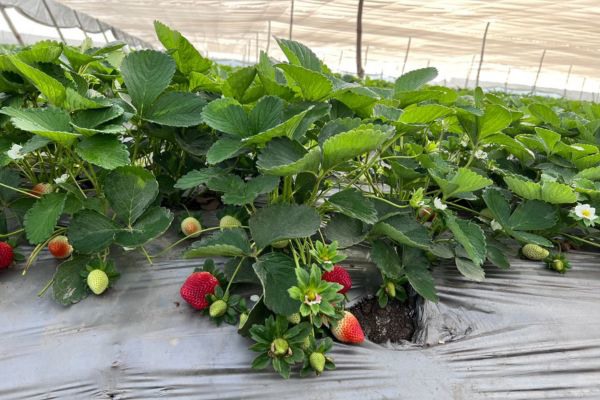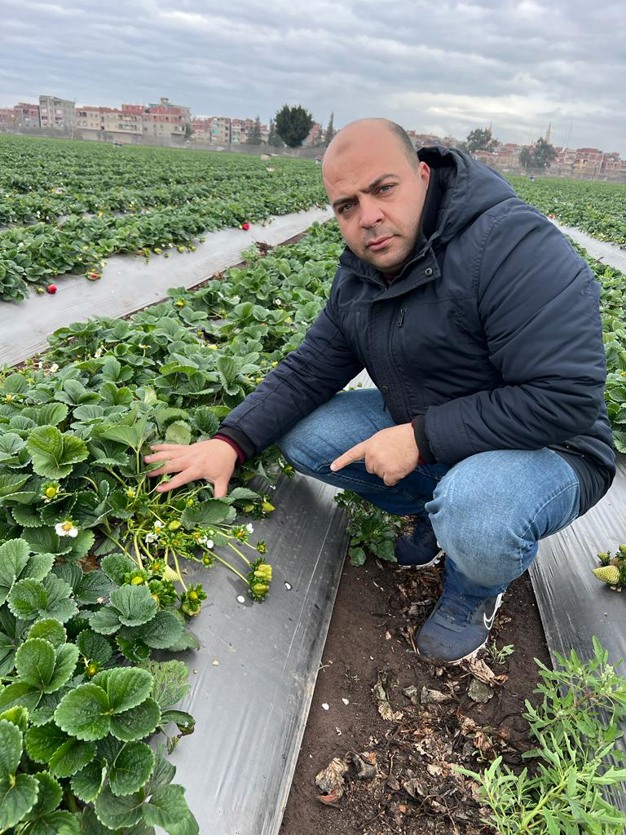The strawberry season in Egypt is coming to an end. Growers are counting their losses and reflecting on an exceptionally difficult season which will have ramifications on other industries.
Elsayed Elgohary, an Egyptian strawberry producer, explains, "We have encountered a lot of problems this year. To begin with, the weather conditions were catastrophic for strawberries. We faced extreme fluctuations in temperature, from very high to very low in short periods, which puts stress on the fruits. In these conditions, the fruits consume more carbohydrates to withstand the stress, which results in yield drops."

The impact of the climatic conditions is exacerbated by the deterioration of plants' quality, says Elgohary. "It's been too long that the same varieties have been planted repeatedly, and this leads to weakened fruit resistance to fungal diseases and insects." The plant suppliers defend their position and blame the production conditions, but Elgohary insists, "This is not just a consequence of the climatic conditions; the quality of the plants has deteriorated, in reality, and not only in the case of strawberries but also in other mass crops such as potatoes and onions. We need plant suppliers to provide us with new robust varieties, and this has become a matter of urgent necessity".
The difficult climatic and phytosanitary conditions have therefore imposed more intense farming operations on producers, such as irrigation, fertilizing, and disease control, resulting in a considerable increase in production costs, reaching at least double last year's costs, according to Elgohary.
 All of the above constraints have led to a significant drop in volumes produced compared to last year, Elgohary assures. "The volume deficit is in the range of 25-30% less than last year, contrary to some statements at the beginning of the season that predicted a 10% increase in volumes. Anyone expecting an increase in strawberry volumes in Egypt is either an interloper in the industry or someone who lacks knowledge about strawberries."
All of the above constraints have led to a significant drop in volumes produced compared to last year, Elgohary assures. "The volume deficit is in the range of 25-30% less than last year, contrary to some statements at the beginning of the season that predicted a 10% increase in volumes. Anyone expecting an increase in strawberry volumes in Egypt is either an interloper in the industry or someone who lacks knowledge about strawberries."
Falling produce volumes, rising production costs, and high demand have combined to drive up the price of strawberries in Egypt, which will affect other industries that rely on fresh strawberries.
"Local manufacturers of processed and frozen strawberries will, unfortunately, be surprised at the end of the season. They will simply not be able to secure the quantities they need for their operations and will see prices at the end of the season higher than at its beginning," concludes Elgohary.
For more information:
Mr. Elsayed Elgohary
Marvel Farm
Tel.: +201002496633
Email: azomite2015@gmail.com
